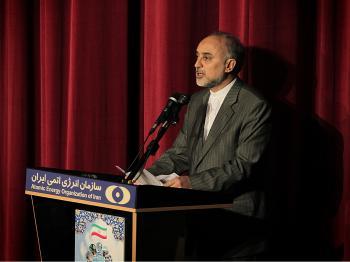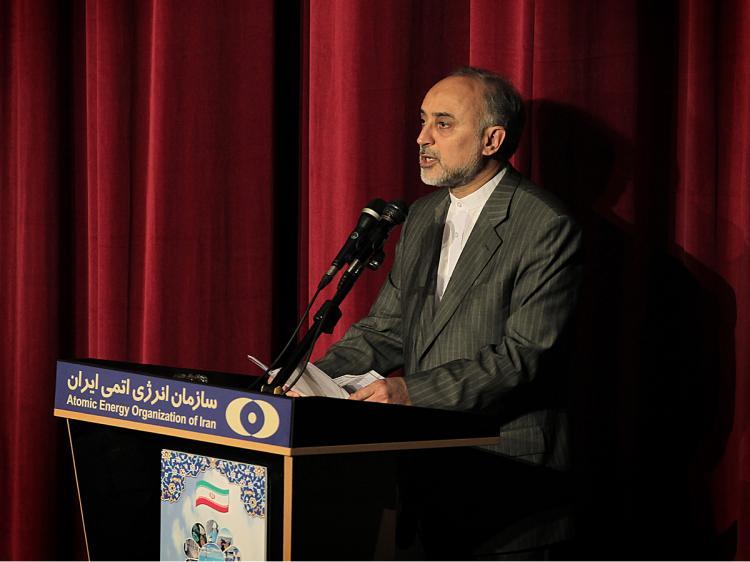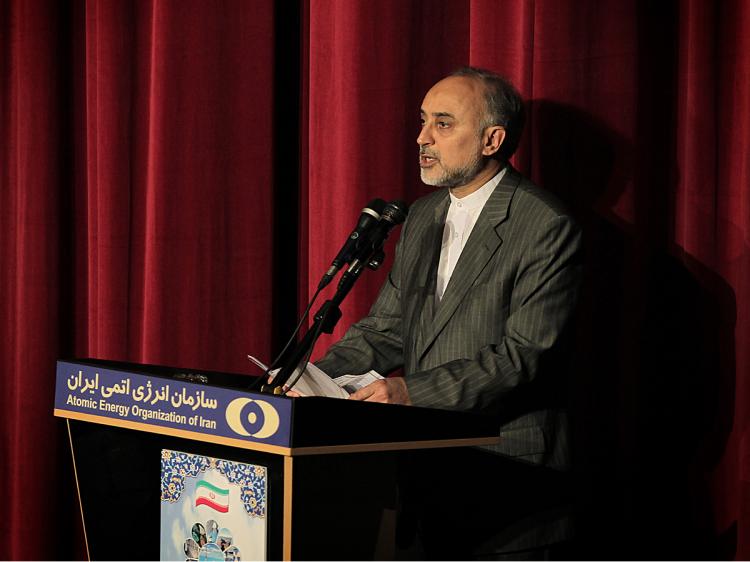DUBAI—Iran has banned two United Nations nuclear inspectors from entering the country amid allegations they had reported “false” information about the regime’s disputed nuclear program.
Ali Akbar Salehi, the head of Iran’s Atomic Energy Organization, said that the names of two inspectors had been handed over to the International Atomic Energy Agency (IAEA).
“Those two now have no right to enter Iran anymore,” he said on state TV. “What they reported was untrue.”
The conflict comes after a report by the two inspectors claimed Iran had conducted experiments to purify uranium at the Jaber Ibn Hayan Multipurpose Research Laboratory in Tehran. The experiments could theoretically be used to create a nuclear warhead.
Iran denied the allegations, and when the inspectors visited the site again in May the equipment had been removed.
Their concerns were released in a report in May. However, Salehi said that the inspectors had released the report without IAEA approval.
The U.N. agency did release a statement on Monday saying that it had full confidence in the two inspectors.
“The agency confirms that its report on the implementation of safeguards in Iran, issued on May 31 is fully accurate,” spokesman Greg Webb said in a statement.
“The IAEA has full confidence in the professionalism and impartiality of the inspectors concerned.”
At issue is also the scope of U.N. inspections in Iran. The country is a signatory to the nuclear nonproliferation treaty, but officials are keen to emphasize the limits of that in terms of the scope of inspections.
Salehi, for example, says that inspectors were not allowed to visit nuclear sites without warning.
“[The U.N.] inspections should be thoroughly within the nonproliferation treaty,” he said on Monday.
He added that Iran was not a signatory to an additional protocol that allows unlimited inspections.
The U.N. Security Council recently implemented a fourth round of sanctions against Iran over its nuclear program.
Russia, a veto-wielding member of the council, agreed to the U.S.-led sanctions despite being a close economic ally of Iran.
On Monday, Iran attempted to drive a wedge between the two former superpowers, by claiming the U.S.-planned defense shield in Europe was less against protecting Western countries from a possible attack by the Islamic Republic and more about isolating Russia.
Iranian Defense Minister Ahmad Vahidi said that the missile shield was an attempt by the United States to “expand its domination over Europe, and to find an excuse not to dismantle its nuclear weapons stationed in the region, while putting pressure on Russia and surrounding it.”
Ali Akbar Salehi, the head of Iran’s Atomic Energy Organization, said that the names of two inspectors had been handed over to the International Atomic Energy Agency (IAEA).
“Those two now have no right to enter Iran anymore,” he said on state TV. “What they reported was untrue.”
The conflict comes after a report by the two inspectors claimed Iran had conducted experiments to purify uranium at the Jaber Ibn Hayan Multipurpose Research Laboratory in Tehran. The experiments could theoretically be used to create a nuclear warhead.
Iran denied the allegations, and when the inspectors visited the site again in May the equipment had been removed.
Their concerns were released in a report in May. However, Salehi said that the inspectors had released the report without IAEA approval.
The U.N. agency did release a statement on Monday saying that it had full confidence in the two inspectors.
“The agency confirms that its report on the implementation of safeguards in Iran, issued on May 31 is fully accurate,” spokesman Greg Webb said in a statement.
“The IAEA has full confidence in the professionalism and impartiality of the inspectors concerned.”
At issue is also the scope of U.N. inspections in Iran. The country is a signatory to the nuclear nonproliferation treaty, but officials are keen to emphasize the limits of that in terms of the scope of inspections.
Salehi, for example, says that inspectors were not allowed to visit nuclear sites without warning.
“[The U.N.] inspections should be thoroughly within the nonproliferation treaty,” he said on Monday.
He added that Iran was not a signatory to an additional protocol that allows unlimited inspections.
The U.N. Security Council recently implemented a fourth round of sanctions against Iran over its nuclear program.
Russia, a veto-wielding member of the council, agreed to the U.S.-led sanctions despite being a close economic ally of Iran.
On Monday, Iran attempted to drive a wedge between the two former superpowers, by claiming the U.S.-planned defense shield in Europe was less against protecting Western countries from a possible attack by the Islamic Republic and more about isolating Russia.
Iranian Defense Minister Ahmad Vahidi said that the missile shield was an attempt by the United States to “expand its domination over Europe, and to find an excuse not to dismantle its nuclear weapons stationed in the region, while putting pressure on Russia and surrounding it.”






